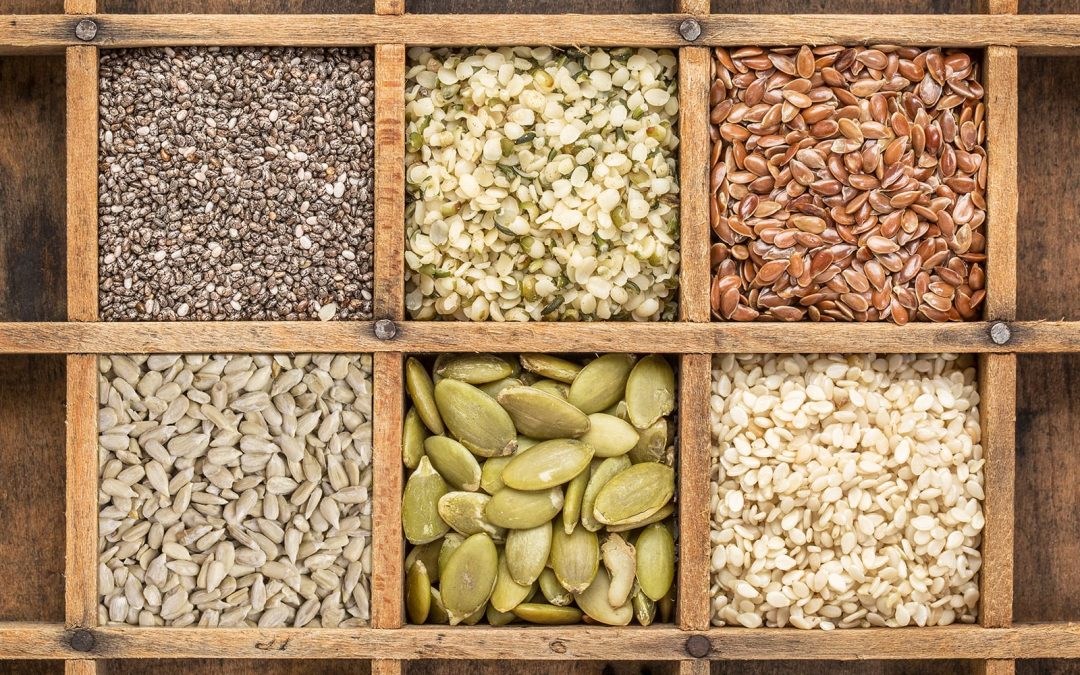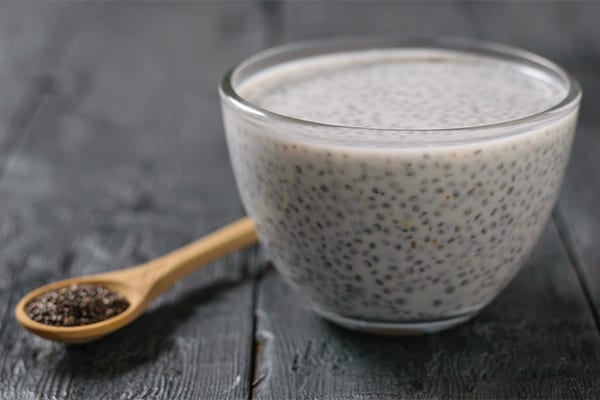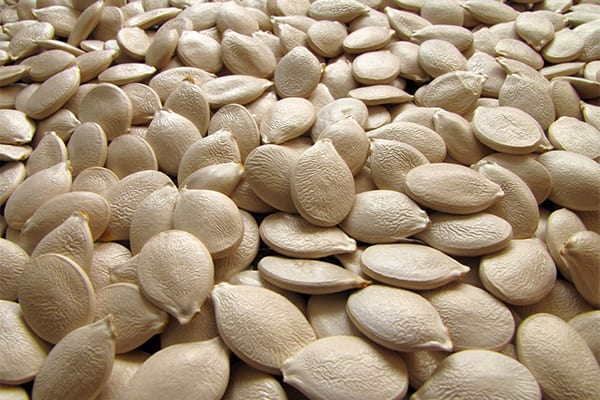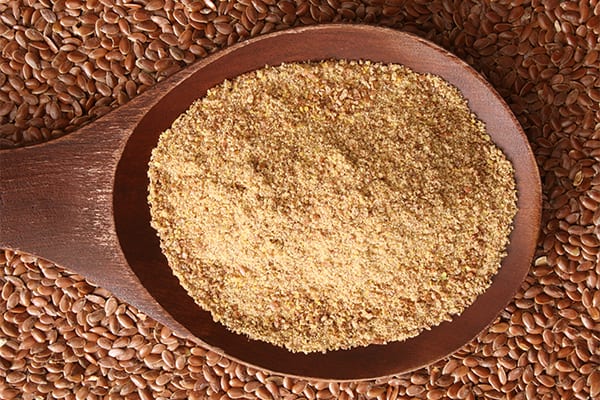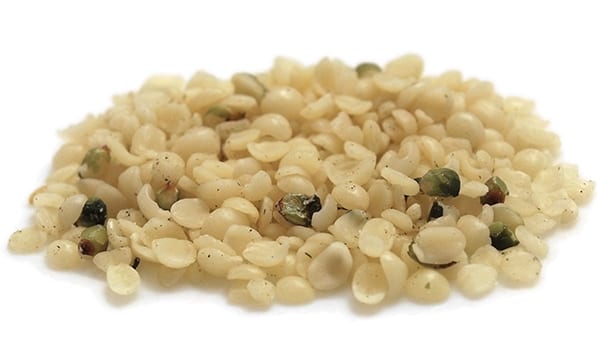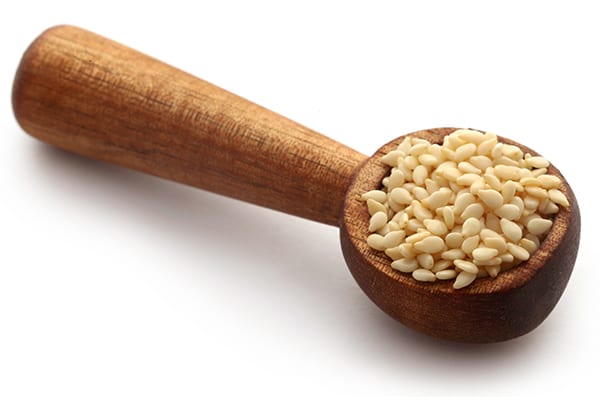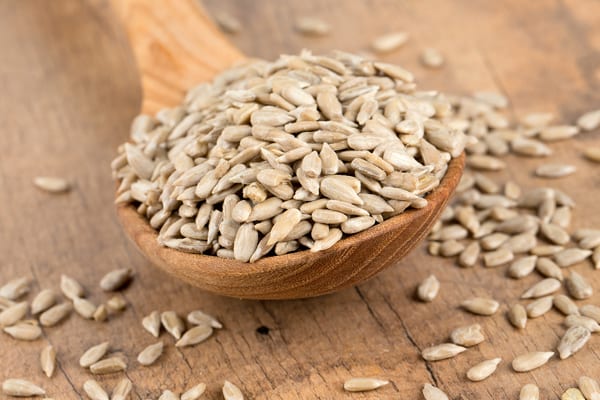Good things really do come in small packages. If you’ve ever sat in the bleachers watching a baseball game crunching on sunflower seeds — many MLB dugouts are filled with buckets of them — you already know the pleasure of these simple snacks. Edible seeds can be nutritional powerhouses with nutrients like plant-based protein, fiber, fatty acids, vitamins, and minerals — plus, they can be great alternatives for people with nut allergies.
Benefits of Seeds
Edible seeds are like nature’s sprinkles, filled with nutritional goodness you can mix into yogurt or oatmeal, shake over a salad, or blend into a smoothie. You can consume them raw, toasted, or roasted depending on the particular seed, and use them to amp up the dietary value of what you’re eating.
“Seeds are full of heart healthy fats,” says Amy Shapiro, MS, RD, CDN, of Real Nutrition in New York. “They can also help balance blood sugar levels and hormones.”
Eat These Seeds!
You only need a few spoonfuls to get the benefits of most edible seeds, which tend to be high in calories relative to their volume. “It’s best to keep your portions moderate,” advises Tanya B. Freirich, MS, RD, CDN, CDE lead dietitian nutritionist at Sweet Nova.
1. Chia seeds
High in: Fiber, magnesium, omega-3s, phosphorus, selenium
Chia seeds are among the richest plant sources of omega-3 fatty acids on Earth. They’re also packed with fiber and a number of minerals. Kids born in the ’80s got their introduction to chia sprouts with kitschy, terra-cotta pet planters (be grateful you had a Tamagotchi). They are indeed the same chia seeds, but you should never snack on the packet included with a Chia Pet because they’re not approved for consumption.
Edible chia seeds were a staple crop of ancient Mexico and Guatemala, offered to the Aztec gods. Now they’re revered for their superfood status. “Chia seeds can absorb up to 12 times their weight in liquid, which is what helps make chia pudding or thicken a smoothie,” says Freirich. “But they don’t need to be soaked; you can drizzle them right onto salads or cereal.”
2. Pumpkin Seeds
High in: Magnesium, phosphorus, zinc
In addition to offering healthy fats and fiber, pumpkin seeds are a good source of protein. In Greece, where the Mediterranean diet helps to promote heart health, roasted pumpkin seeds are a common snack nicknamed “passatempo,” or pastime.
“Even though roasted pumpkin seeds are delicious, their healthy fats start to break down after 20 minutes of roasting in the microwave,” Freirich says. “Limit microwave roasting time to around 12 minutes for the most nutritious results.” Eating the shell with the seed can also increase the amount of fiber and zinc you get from pumpkin seeds.
3. Flax seeds
Like chia and hemp seeds, flax seeds (a.k.a. linseeds) are among the richest sources of alpha-linolenic acid (ALA), an essential omega-3 fatty acid. Along with this “good fat,” they deliver soluble and insoluble fiber and lignans. “Lignans are powerful antioxidants,” says Shapiro. In fact, flaxseeds actually contain 75 to 800 times more lignans than many other plant foods.
Recent studies have positively linked flaxseeds to cardiovascular health, blood sugar, and even some types of cancer. One common mistake people make with flaxseeds is eating them whole. “You have to eat ground flaxseed for your body to absorb the omega-3s,” says Frierich. “You can buy ground flaxseed from the store, but it has a shorter shelf life than whole ones, so as an alternative, you can easily grind them at home in a spice or coffee grinder.”
4. Hemp seeds
High in: Magnesium, phosphorus, zinc
Unlike poppy seeds, which in very rare cases could potentially cause you to fail a doping test because of trace amounts of morphine, hemp seeds won’t get you into trouble — or get you high. It’s true that hemp is a close cousin to marijuana in the Cannabis plant family, however it has much lower concentrations of THC.
In addition to being magnesium rich, hemp seeds are also easier to digest than some grains, nuts, and legumes. They also boast anti-inflammatory properties, which is why they’re sometimes recommended for people with eczema, according to Shapiro. They also deliver some heart-healthy omega-3s, fiber, iron, and potassium.
5. Sesame seeds
High in: Calcium, iron, magnesium
Sourced from a flowering plant, sesame seeds grow in long pods similar to okra. They have a delicious nutty flavor that makes them a popular topping on everything from sushi rolls to bagels. They provide antioxidant-powered lignans, protein, and other minerals.
Tahini paste, which helps turn chickpeas into delicious hummus and makes a great base for tasty salad dressings, is made from crushed sesame seeds. The Japanese also make a tahini-like paste called “nerigoma.” As an alternative to nuts, tahini has become a hot ingredient recently for its nutty flavor.
6. Sunflower Seeds
High in: Phosphorus, vitamin E
Baseball lore links the history of sunflower seeds in dugouts to a health-conscious swap for chewing tobacco. However, unlike chaw, sunflower seeds are rich in vitamin E, which acts as a powerful antioxidant in the body, and has been shown to have benefits for endurance exercise. Sunflower seeds are also a good source of vitamin B-6, zinc and iron.
Vitamin B-6 helps support immune and protein metabolism, and some studies have even linked it to a reduction in PMS symptoms. So, that happy-looking field of sunflowers could actually make you feel sunnier.

